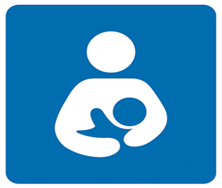Give Children Time to Get Used to the New Baby
Give Children Time to Get Used to the New Baby.
|
|


Healthy Family
 Deciding how you are going to feed your baby is one of the most important decisions you will make as a parent. Making an informed decision means you have all of the information you need to help you decide what is best for your family.
Deciding how you are going to feed your baby is one of the most important decisions you will make as a parent. Making an informed decision means you have all of the information you need to help you decide what is best for your family.
To make an informed decision about how to feed your baby you should know:
Please  for more information on breastfeeding
for more information on breastfeeding
Risks of Formula Feeding
Babies are at increased risk of:
Mothers are at increased risk of:
Others:
If you have made an informed decision to feed your baby breast milk substitutes please contact your health care provider or your local Public Health office (www.gnb.ca/publichealth then click on Public Health Clinics).
| Ask for information on sterilization, preparation and storage or breast milk substitutes. |
Give Children Time to Get Used to the New Baby.
|
|
Make Changes and Plans Ahead of Time
|
|
Prepare your Children for the Arrival of a New Baby
| SIGNS OF POSTPARTUM DEPRESSION | |
|---|---|
| A woman suffering from postpartum depression can feel | A woman suffering from postpartum depression can also |
| Sad | Eat too much or too little |
| Like weepig or crying a lot | Have an increase or decrase in appetite |
| Guilty | Have difficulty concentrating |
| Angry | Have low self-esteem |
| Exhausted | Have panic attacks |
| Anxious, irritable, and worried | Have scary fantasies |
| Overwhelmed, lonely, and helpless | Have thoughts of hurting herself |
| Oversensistive | Think about hurting her baby |
| Worthless and confused | Lose interest in things that used to bring pleasure |
| Like she is not her normal self | Lose self-confidence |